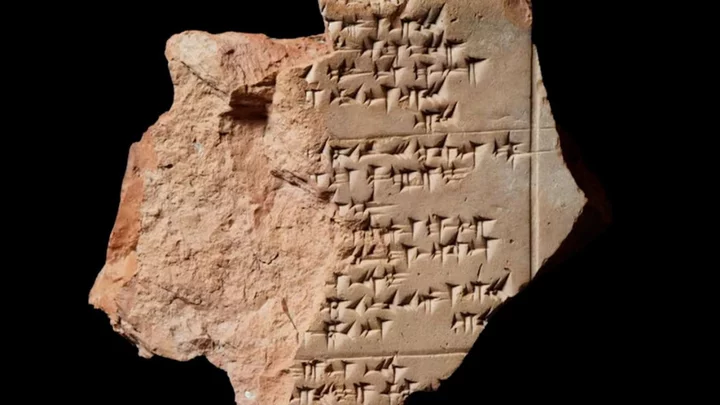Archaeologists in Turkey are slowly unravelling the secrets of a previously unknown ancient language.
And among them are revelations that long-forgotten civilisations used language to promote multiculturalism and political stability.
The ancient clay tablets unearthed from archaeologists, in the ancient capital of the Hittite Empire at Hattusa, were recently found to contain the previously unknown language.
Researchers had dusted off nearly 30,000 unique tablets at the scene – a UNESCO World Heritage Site – with most written in Hittite, and a few in the brand new language.
The ongoing excavations have since revealed that the imperial civil service had whole departments whose job it was to research their subject peoples’ religions.
Back in the second millennium BC, Hittite leaders told their officials to record religious ceremonies and other traditions of subject peoples by writing them in their respective local languages.
The idea was that the traditions would be preserved and incorporated into the wider empire, in what appears to be a push towards multiculturalism.
The fact that multiculturalism was such a prominent part of Bronze Age culture certainly has resonances in the modern day, where debates around immigration and multiculturalism continue to be a hot topic.
So far, experts have found at least five subject ethnic groups who have had the treatment, with the latest example unearthed two months ago.
It was written in a previously unknown Middle Eastern language that had been lost for up to 3,000 years.
The language is being called Kalasmaic, because it would have been spoken by a subject people in an area called Kalasma in the northwest of the empire.
And while only five minority languages have so far been found on the Bronze Age tablets, the reality is that there were probably at least 30, archaeologists say.
Daniel Schwemer, a Wurzburg University professor who is leading the investigation into the newly discovered texts, said: “Bronze Age Middle Eastern history is only partly understood – and discovering additional clay tablet documents is helping scholars to substantially increase our knowledge.”
How to join the indy100's free WhatsApp channel
Sign up to our free indy100 weekly newsletter
Have your say in our news democracy. Click the upvote icon at the top of the page to help raise this article through the indy100 rankings.









